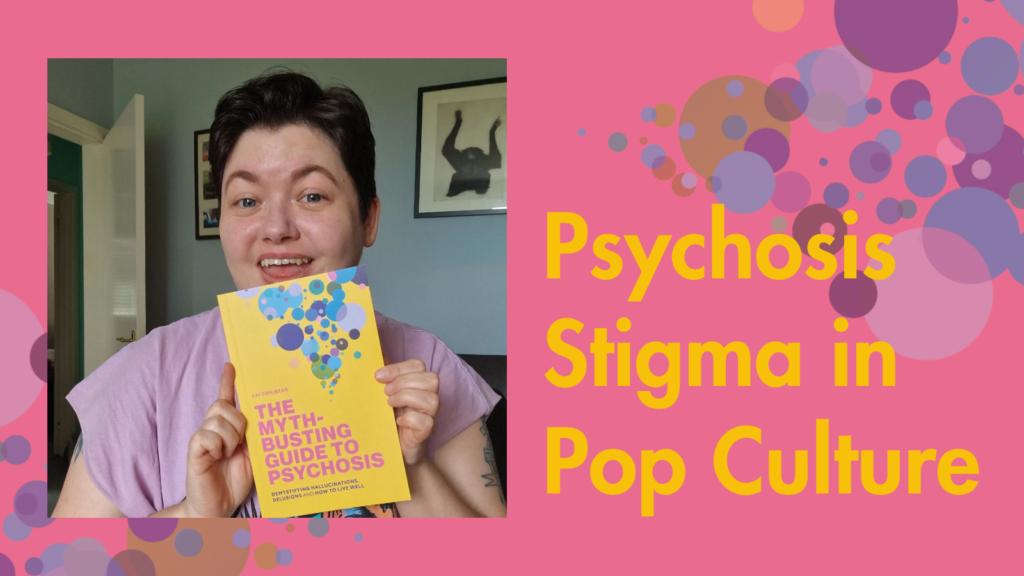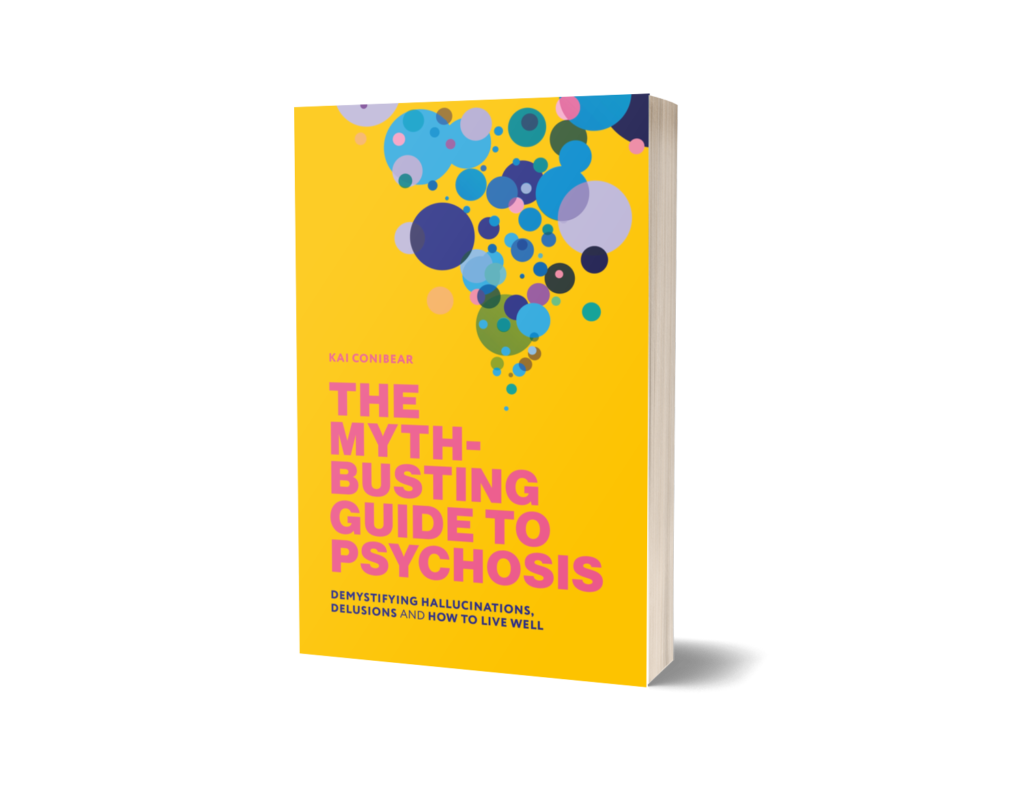
Addressing Psychosis Stigma in Pop Culture
How do I speak to friends about stigmatizing content? This blog features an excerpt from Kai Conibear’s The Myth-Busting Guide to Psychosis, highlighting how negative portrayals of people with psychosis in popular culture can affect perceptions. Kai also provides some useful tips on discussing stigmatizing content, which you may want to bank for future conversations.

I was a teenager in the late 1990s and early 2000s, and apart from the fact that my eyebrows survived this period of time, I’m also proud that I was able to think critically about the stereotypes of psychosis I saw in pop culture. Even though I didn’t have a mental illness diagnosis, I had begun to experience psychotic
episodes. What I would see on television or at the cinema painted a radically different picture to what I was experiencing.
I think it hindered me from understanding psychosis in two ways:
- I didn’t connect the word ‘psychosis’ with what was happening to me, because depictions on-screen were extreme, stigmatizing, or plainly inaccurate.
- When I did see a connection, the portrayals filled me with terror that if I told anyone, I would be locked away forever.
Whereas depictions of depression and anxiety are now commonplace and often sensitively portrayed, similar examples of psychosis are very rare. Psychosis in movies is often tied to the horror genre and – spoiler – the character with psychosis is almost definitely the murderer.
It usually plays out like this…
A quiet, unassuming yet antisocial and vulnerable character becomes psychotic and descends into ‘madness’, probably with a murderous killing spree thrown in for good measure. Now, how to unpick that!? As we’ve already seen, psychosis does not equal violence, but the stigma and misunderstanding with this trope goes far deeper. It becomes problematic when your introduction is the character acting ‘crazy’ during a psychotic episode. Psychosis isn’t fused with someone’s personality, and it doesn’t make a person who they are. It’s something anyone can experience for a number of reasons. When you have a chance to get to know a character, you can identify what their personality is, and it shows you that psychosis is separate from what makes up that person.

There is some good news. UK mental health charity Mind have their own media advisory service which offers advice to producers, researchers, and writers on how to create accurate and sensitively portrayed dramatizations of mental illness in soaps and dramas. In recent years, the media advisory service has worked with soaps EastEnders and Coronation Street on storylines involving post-partum psychosis and a character’s first experience of a psychotic episode.
Media representations reach millions. They can be a force for good, and media that gets it right can be a chance to put stereotypes to bed, or at least challenge misconceptions and get people thinking.
How to talk to friends about stigmatizing content:
Step one is to explain what part of the content was stigmatizing.
‘The movie focused on the character’s psychosis, as if it was the central part of their personality.’
‘Psychosis was used as a plot device for the character to go “crazy” and start murdering people.’
Step two is to explain why it contributes to stigma. ‘Psychosis is not a personality trait. People are complex and shouldn’t be defined or described by something they have no control over.’ ‘Only a tiny minority of people with psychosis are violent. This representation isn’t accurate and perpetuates a false narrative around psychosis.’
Step three is to explain how it affects you, or someone you’re close to with psychosis.
‘It’s upsetting to see psychosis depicted in this way, because I feel people will only see the psychosis when they talk to me, and not who I really am.’ ‘It makes me nervous to open up and tell people I have psychosis, because they might see me as a violent killer.’
Step four is to explain you’re open to any questions they have.
‘If you have any questions about psychosis, I’ll try to answer as best I can.’ ‘I can explain more about my experiences of psychosis, if you have any questions.’
This is an excerpt from pages 115-119 of The Myth-Busting Guide to Psychosis by Kai Conibear, order your copy here.